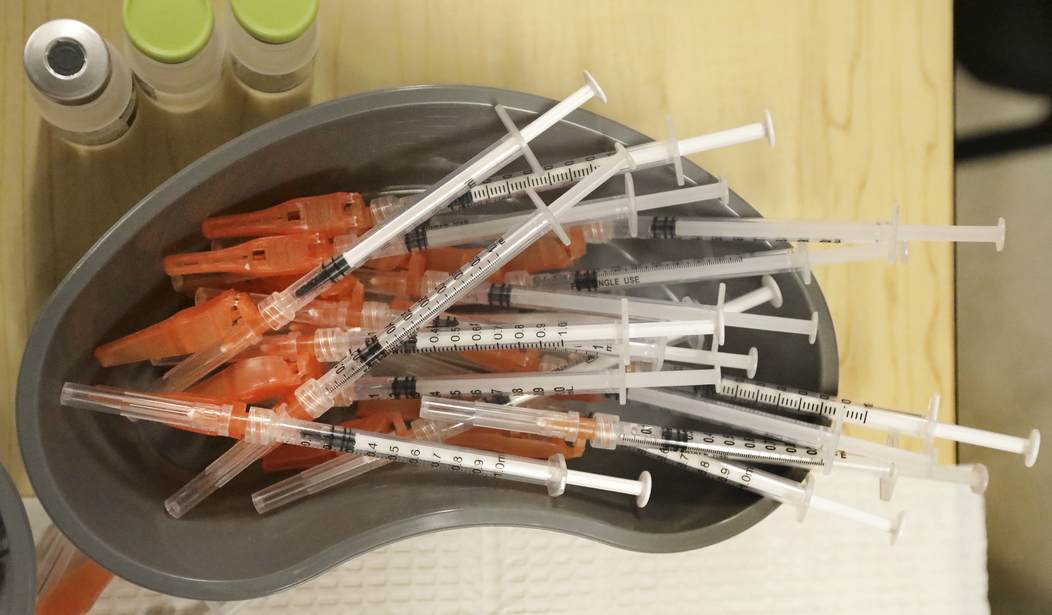A running debate about public health messaging on monkeypox has been playing out in my social media feed the past few weeks, although it’s a lopsided one. On one side are public officials like this nitwit, who seem concerned first and foremost with fighting the “stigma” of a disease that thus far has afflicted almost exclusively gay men:
We're calling on @WHO to act immediately to rename the “monkeypox” virus. We have a growing concern for the potentially stigmatizing effects that the messaging around the “monkeypox” virus can have on vulnerable communities. Read our letter: https://t.co/hC6L8o60TH pic.twitter.com/G8CQ9ueaMJ
— Commissioner Ashwin Vasan, MD, PhD (@NYCHealthCommr) July 26, 2022
If you’re wondering how prudently Vasan handled the emergence of a different virus that placed another vulnerable community at risk of being stigmatized, the answer is: Exactly as you’d expect.
Today our city is celebrating the #LunarNewYear parade in Chinatown, a beautiful cultural tradition with a rich history in our city. I want to remind everyone to enjoy the parade and not change any plans due to misinformation spreading about #coronavirus. https://t.co/bwCnIb7j8H
— Commissioner Ashwin Vasan, MD, PhD (@NYCHealthCommr) February 9, 2020
The “stigma” obsessives remind me of the epidemiologists who turned on a dime in the summer of 2020 from insisting on rigorous social distancing to prevent the spread of COVID to justifying massive civil rights gatherings after George Floyd’s death in the belief that racism was a more serious health risk than the novel coronavirus. If, in the midst of a national epidemic, your priorities run towards politics more so than controlling the outbreak, then you’re not doing your job. Run for office if you want to bloviate about stigma and prejudice. Worry about transmission if you want to manage public health.
Which brings us to the other side of the debate. Many observers, including plenty of gay men, insist that the heavy breathing about “stigma” is doing gays no favors. To limit the spread and help the gay community avoid infection, health authorities need to say plainly and emphatically that gay men are at special risk of exposure to monkeypox and therefore need to take special precautions. Not all gay men, obviously: Those who are coupled off are out of harm’s way of a virus that appears to be transmitting mainly through sex. But gay men with extensive sexual networks? Yeah, special risk.
It’s true that the virus *can* infect anyone and *can* be transferred via non-sexual contact, but it does no one any favors to keep hammering those facts at the expense of informing them how the virus *is* infecting people.
Astounding. And the page does not emphasize sexual contact as the primary mode of transmission. Reminiscent of how it took CDC until OCTOBER 2020 to update COVID guidance to acknowledge airborne spread. https://t.co/GrChUfBWLH
— Josh Barro (@jbarro) July 27, 2022
The irony, Barro goes on to note, is that by straining to obscure the fact that gay men are the ones mainly at risk, public health officials are leaving people to wonder why gay men are being targeted for vaccination:
What's wrong with the "don't call it an STI"/"anyone can get Monkeypox" rhetoric? Now you have people who believed the rhetoric and think it's "homophobic" that public health agencies are prioritizing vaccination based on the fact that most transmission is sexual and among MSM. https://t.co/jff45crnTU
— Josh Barro (@jbarro) July 27, 2022
And so the dopey “stigma versus candor” debate wears on — but hopefully not for much longer. That’s because the WHO finally spoke plainly on the topic today, sounding a global alert that men with multiple male sex partners should dial it back for awhile.
The WHO’s monkeypox expert, Rosamund Lewis, said men who have sex with men are the group at the highest risk of infection right now. About 99% of cases are among men, and at least 95% of those patients are men who have sex with men, Lewis said.
WHO chief Tedros Adhanom Ghebreyesus said it is crucial for public health authorities to engage communities of men who have sex with men to reduce transmission of the virus and take care of those infected, while protecting human rights by fighting stigma and discrimination.
“For men who have sex with men, this includes for the moment, reducing your number of sexual partners, reconsidering considering sex with new partners, and exchanging contact details with any new partners to enable follow up if needed,” Tedros said.
Tedros went on to check the box by adding that “stigma and discrimination can be as dangerous as any virus,” which isn’t true but will hopefully soothe the Vasans of the world who find themselves more worried about what the virus is called than what it’s up to.
The good news is that the media lately has been more responsible than public health authorities, with numerous pieces written urging officials to come clean about which group is most at risk. A writer at the Atlantic pointed out last week that bureaucrats have gotten good at discussing disproportionate historic harms but remain not so good at addressing disproportionate emerging risks: “COVID-19 led to the adoption of remote learning and the widespread closing of schools, leaving millions of kids at risk of long-term economic and educational deficits. But when it came to identifying students at risk, many officials, worried about ‘stigmatizing’ an entire generation, balked.” The day before that piece was published, Benjamin Ryan warned WaPo’s readers starkly that they’re being misled about monkeypox:
This broad-strokes maxim — that everyone on Earth is susceptible to this troubling viral infection — might be factual on its surface. But it is so egregiously misleading it amounts to misinformation…
An uncomfortable truth, one documented in peer-reviewed papers, is that sexual behaviors and networks specific to gay and bisexual men have long made them more likely to acquire various sexually transmitted infections compared with heterosexual people. This includes not only HIV, but also syphilis, gonorrhea, chlamydia, hepatitis B and sexually transmitted hepatitis C…
Such experts have also asserted that the risk of monkeypox to the broader population not having multiple sex partners remains low — even “very low.” This is hopeful news, and the wider public deserves to be reassured accordingly. Assuaging fears of contagion will help fight unhelpful hysteria and prevent gay and bisexual men from being subjected to even greater stigma should they be painted as culprits of the spread of virus to others.
Science journalist Donald McNeil recently raised some eyebrows when he argued in a piece about the virus that gay sex parties should at least be postponed until many more gay men have had a chance to be vaccinated. Now here’s the WHO giving the same advice, if a bit more obliquely. Two days ago a doctor in New York warned authorities not to repeat the mistakes of the HIV epidemic by letting fear of public stigma against gays lead them to offer poor advice on managing the risk of infection, as one of those presents a more dire threat to gays than the other. “One of the legacies is that today, especially amid a wave of renewed bigotry against LGBTQ+ communities, public health officials are reluctant to be seen as sexually prescriptive by advising people to abstain for a few weeks, to restrict partners, or to get checked and treated for extant STDs,” wrote Annie Sparrow. “But the job of public health officials isn’t to be popular. It is to communicate clearly, provide people with the information they need to protect themselves, and suggest the best available tools to fight infection.” Indeed.
I don’t know, maybe one reason officials like to blather about stigma is that they’re no good at the job they’re actually supposed to be doing? I’ll leave you with this thought, another shining moment in the CDC’s recent history.
For Monkeypox there are vaccines that work (the Smallpox vaccines). Treatments that work (designed for Smallpox). Techniques that work (contact tracing as if it was Smallpox). It is not hyper-virulent.
And they have failed, completely and utterly, to prevent this growing.— Nicholas Weaver (@ncweaver) July 24, 2022








Join the conversation as a VIP Member